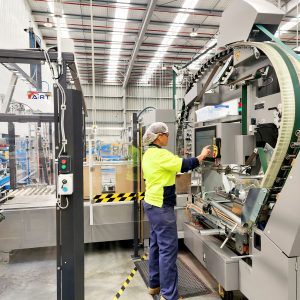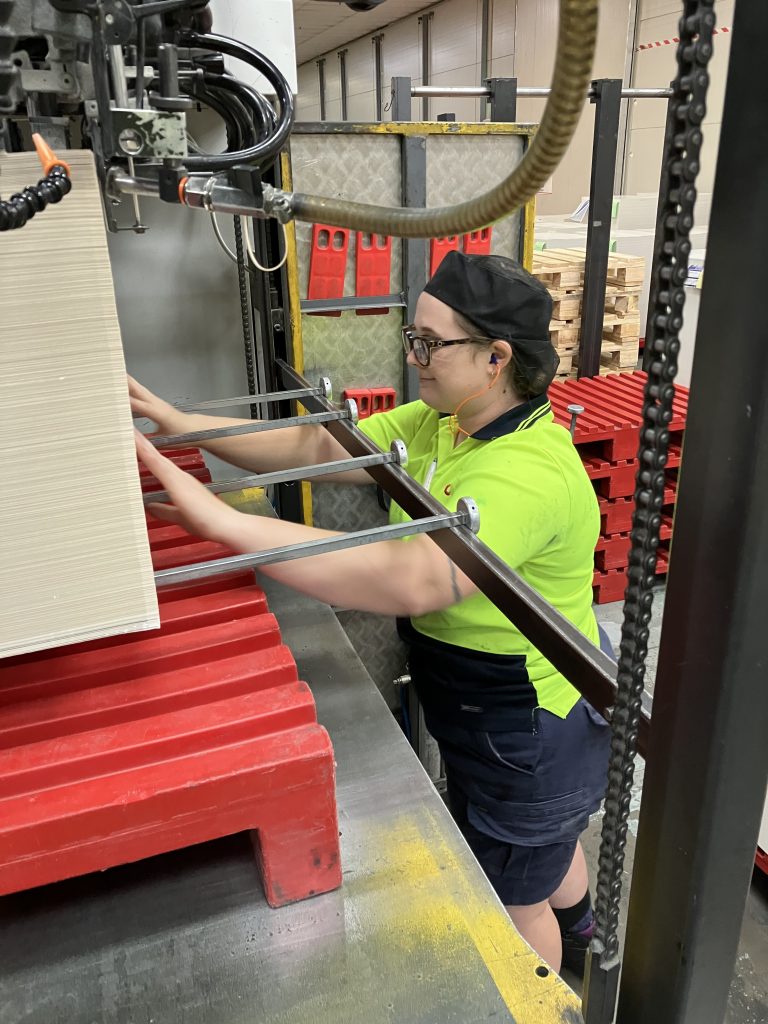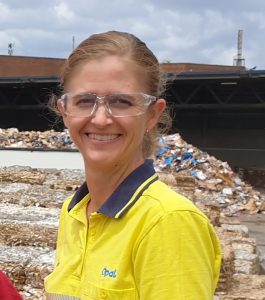Inspiring change: Celebrating women and girls in science
This year marks the 9th International Day of Women and Girls in Science. The day is an annual observance that celebrates the achievements and contributions of women and girls in science, technology, engineering, and mathematics (STEM).
At Opal, science plays an important role in our day-to-day operations in Australia and New Zealand. We’re proud to recognise our team members’ contribution through STEM across our different sites.
This year, we interviewed four Opal team members’ across Australia and New Zealand who shared insights into their careers so far.
NuaNua Ah-Loo, Apprentice Gluing Operator, Opal Cartons Auckland, has been with Opal for 10 years.
 NuaNua was working at Opal as a gluing assistant on the Bobst Flexo folder gluer before applying to be an apprentice gluer. NuaNua wanted to do an apprenticeship because she had seen that most operators in manufacturing were male. “I wanted to make a change to show other females that it can be done and that we can make a change in the industry,” she says.
NuaNua was working at Opal as a gluing assistant on the Bobst Flexo folder gluer before applying to be an apprentice gluer. NuaNua wanted to do an apprenticeship because she had seen that most operators in manufacturing were male. “I wanted to make a change to show other females that it can be done and that we can make a change in the industry,” she says.
“It is hard working and having to learn daily and do assignments and still be a mum and wife, but with the support and patience from my trainer at work, I know I will achieve my goals.”
The apprenticeship takes three years to complete and NuaNua aims to be a fully qualified operator by 2026! “I am five months in, and I have to hand in two units of assignments every three months. I would definitely recommend other female team members to upskill and take on an apprenticeship,” she says.
“I have spent most of my working career in a manufacturing environment and I love it,” she says.
“I would like to be a role model for women in general to show that anything you set your mind to can be achieved,” NuaNua says.
Emma Cook, Print Apprentice, Opal Cartons Christchurch in NZ, has been with Opal for three and a half years.
 Emma worked in food catering and events, then I applied for a temporary position at Opal through an agency. “This position was supposed to be for two weeks, and wow, I am still here,” she says.
Emma worked in food catering and events, then I applied for a temporary position at Opal through an agency. “This position was supposed to be for two weeks, and wow, I am still here,” she says.
“I started in the finishing department where I worked for nine months, when the Print Assistant role came up. I was offered this role and decided to give it a go. Three and a half years later I am working towards my Print Apprenticeship.”
Emma applied to take on an apprenticeship at Opal because she wanted to gain new knowledge and skills in the industry. ”I want to continue to learn something new and to also progress my career. This process involves completing assignments on relevant areas within the industry.
“I am four months into my apprenticeship, which normally takes four years to complete, but I am hoping to get this done in three years,” she says.
In her current role, Emma feeds the carton board into the back of the machine working alongside a qualified printer. “This keeps me on my toes and helps me be organised. I also deal with chemical cleaning, setting up plates in the machine and cleaning out ink from the machine.
“My typical workday involves printing 35,00 to 40,000 sheets on average per day. I am also responsible for identifying faults in the machine and to keep the process and the machine running smoothly,” she says.
Emma says that she would recommend anyone to put themselves out there to take the opportunity with an apprenticeship. “It allows self-growth and self-driven learning, also upskilling while working.
“If you back yourself, you can achieve anything that you set your mind to. Don’t let anyone hold you back,” Emma says.
Karen Jones, Environment, Testing and Management Systems Manager, has been with Opal for more than eight years.
Karen was led to a career in STEM due to her love for science at school. “I always enjoyed engineering science in years 11 and 12. When researching careers in my senior school years, chemical engineering appealed to me because it combines all aspects of STEM and has a broad range of career opportunities,” she says.
 Karen has a degree in Chemical Engineering but has always had an interest in the environment. “I did the environmental electives as part of my engineering degree,” she says.
Karen has a degree in Chemical Engineering but has always had an interest in the environment. “I did the environmental electives as part of my engineering degree,” she says.
Within her day-to-day role, Karen uses science, engineering and maths every day. “Some examples include calculating pollutant loads such as carbon monoxide air emissions for regulatory reporting, converting units of measurement from lab reports to check compliance with licence limits that are in different units.
“Part of my role is also understanding chemical properties including pH and reactivity to work through chemical safety risk assessments, and explaining odour or noise to local community members,” she says.
No day is the same as the previous day for Karen although she has a mix of regular auditing and reporting that she works through. “I work on odour audits, remediated land audits, chemical storage audits, noise monitoring, reporting for regulators such as EPA, Sydney Water, Department of Planning, National Pollutant Inventory,” she says.
Karen also works in providing environmental support for operations and projects, and management of site environmental licences and approvals. “I also help with the management of the site document and quality management system, community engagement such as site tours and community liaison group meetings, and break-in work such as response to environment incidents and community complaints, as well as enquiries from our regulators,” Karen says.
Kelly McLauchlan, Environment, Testing and General Environment Duty Manager has been working at Opal for six years.
Within her day-to-day role, Kelly uses a lot of STEM knowledge when liaising with laboratories, auditors and consultants. “Every day is different, I am involved in a lot of laboratory and environmental-based work,” she says.
“My day could consist of being out in the field sampling and testing for environmental attributes, gathering information for reports to various authorities, and assessing environmental risks in all areas of the Maryvale site.
“I also work with site personnel and contractors to implement risk controls and other solutions or help out in the laboratory when needed,” Kelly says.
Kelly has a Bachelor of Science majoring in Pharmacology and a minor in analytical chemistry. “I have worked at the Australian Government analytical laboratory as a Laboratory Technician, Mayne Pharmaceuticals which changed to Hospira (also known as DBL and now Pfizer) in quality roles. I started at Australian Paper in the laboratory before moving into the environment team,” she says.
Kelly has always been interested in chemistry, particularly analytical chemistry that determines the compositions of things and how they interact particularly pharmaceuticals. “After breaking my ankle, I was unable to work in a laboratory and ended up in a quality role in a pharmaceutical company where I enjoyed the challenges of regulatory compliance and the manufacturing processes,” Kelly says.